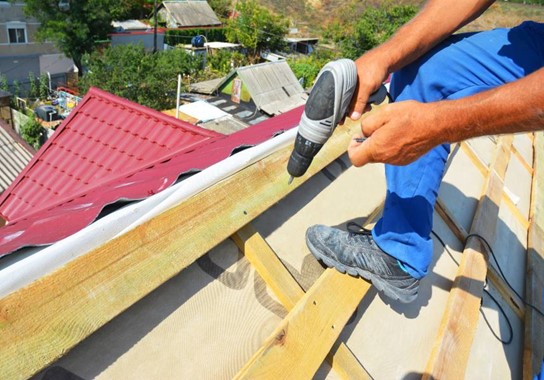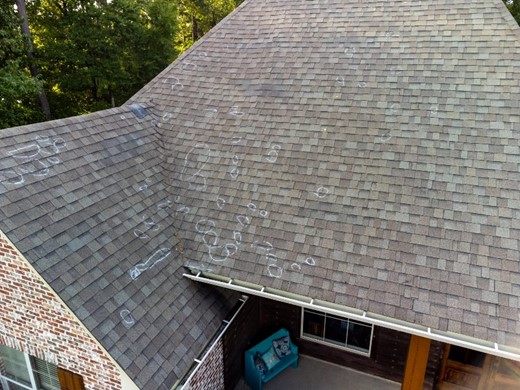Hurricane-Resistant Roofing Solutions for Florida Businesses

Florida’s stunning beaches and vibrant culture are often overshadowed by the relentless hurricane season. For business owners, this means one thing—preparing your property for the worst. One of the most critical aspects of hurricane preparation is securing a roof that can withstand the ferocity of these storms. Learn more about the best hurricane-resistant roofing solutions for Florida businesses to protect your investment.
Why Florida Businesses Need Hurricane-Resistant Roofing
Florida is notorious for its intense hurricane seasons, which bring destructive winds, torrential rains, and flying debris. Without appropriate measures, the roof of your commercial property can suffer severe damage, leading to costly repairs and potential business interruptions. Hurricane-resistant roofing not only increases your building’s resilience but also offers peace of mind during stormy weather.
Understanding Hurricane-Resistant Roofing
Before we dive into the specific types of roofing ideal for hurricane-prone areas, it’s helpful to cover what makes a roof hurricane-resistant. Hurricane-resistant roofs are designed to withstand high winds, heavy rain, and impact from flying debris. They adhere to stringent building codes and regulations for maximum protection and durability.

Benefits of Investing in Hurricane-Resistant Roofing
Improved Safety and Protection
Hurricane-resistant roofs are engineered to provide superior protection against extreme weather conditions. This significantly reduces the risk of roof failure and shields your business premises from water damage and structural issues.
Compliance with Building Codes
In Florida, stringent building codes mandate the use of hurricane-resistant materials for commercial properties. Investing in compliant roofing not only supports your safety but also avoids hefty fines and legal complications.
Long-Term Cost Savings
While hurricane-resistant roofing may have a higher initial cost, the long-term savings are substantial. These roofs require fewer repairs and replacements, translating to lower maintenance costs over the years.
Metal Roofing
Why Metal Roofing is Ideal
Metal roofing is renowned for its exceptional durability and wind resistance. These roofs can withstand wind speeds up to 180 mph, making them an excellent choice for Florida businesses. Additionally, metal roofs are lightweight, reducing the risk of structural damage during a hurricane.
Installation and Maintenance Tips
To maximize the benefits of metal roofing, enlist professionals for installation and regular maintenance. Proper sealing and fastening prevent wind uplift and water infiltration.
Asphalt Shingles – Affordable Yet Reliable
The Pros and Cons of Asphalt Shingles
Asphalt shingles are a popular choice due to their affordability and versatility. While standard asphalt shingles can resist winds up to 110 mph, premium options like GAF Timberline UHDZ offer wind resistance of up to 150 mph.
Best Practices for Maximizing Durability
For businesses opting for asphalt shingles, use high-quality materials and invest in proper installation. Regular inspections and timely repairs can significantly extend the lifespan of asphalt shingle roofs.
Clay and Concrete Tiles
Advantages of Tile Roofing
Clay and concrete tiles offer a perfect blend of aesthetics and durability. These tiles can withstand wind speeds up to 130 mph and are highly resistant to water damage. Their heavy weight also adds to their stability during hurricanes.
Important Maintenance Tips
To magnify the longevity of tile roofing, regular inspections are of paramount importance. Replace any cracked or damaged tiles promptly and check for proper sealings to prevent water infiltration.
Slate Tiles
The Benefits of Slate Roofing
Slate tiles are an eco-friendly roofing option known for their longevity and natural beauty. These tiles can handle wind speeds up to 110 mph and come with a lifespan exceeding 100 years.
Maintenance Considerations
Slate roofing requires professional installation and regular maintenance to address any loose or damaged tiles. Despite their weight, proper anchoring can improve their wind resistance.
Wood Shakes
Characteristics of Wood Shakes
Wood shakes offer a rustic and natural appearance, with wind resistance up to 170 mph. However, they require more maintenance compared to other roofing materials.
Ensuring Longevity
Proper treatment and regular maintenance preserve the integrity of wood shake roofs. Consider using fire-resistant treatments and adequate ventilation to prevent moisture buildup.
Comparing Your Options
Metal vs. Asphalt Shingles
While metal roofing offers superior wind resistance, asphalt shingles are more budget-friendly and versatile. Business owners must weigh these factors based on their specific needs and budget constraints.
Clay Tiles vs. Slate Tiles
Clay tiles offer a balance of aesthetics and durability, whereas slate tiles are more eco-friendly and long-lasting. Both options provide excellent protection but require professional installation and maintenance.
Choosing the Right Roof for Your Business
Assessing Your Needs
Evaluate your business’s specific requirements, including budget, aesthetic preferences, and local building codes. Consulting with a roofing expert can help you make an informed decision.
Conducting an Inspection
Before installation, conduct a thorough inspection of your existing roof. Identify any structural issues or vulnerabilities that need to be addressed to ensure the new roof’s effectiveness.
Secondary Measures for Better Roof Performance
Hurricane Straps and Clips
Installing hurricane straps and clips can support your roof’s stability during high winds. These reinforcements anchor the roof to the building’s structure, reducing the risk of uplift.
Secondary Water Barriers
A secondary water barrier provides an additional layer of protection against water infiltration. This is especially crucial in hurricane-prone areas where heavy rains are common.
The Role of Building Codes in Hurricane-Resistant Roofing
Understanding Florida’s Regulations
Florida’s building codes mandate the use of hurricane-resistant materials and practices for commercial properties. Familiarize yourself with these regulations to ensure compliance and optimal protection.
Staying Updated with Code Changes
Building codes are periodically updated to incorporate new technologies and practices. Stay informed about any changes so your roofing system remains compliant and effective.
Paul Bange Roofing in South Florida Can Help!
Investing in hurricane-resistant roofing can make all the difference for Florida businesses. By selecting the right materials and adhering to best practices, you can protect your property and help your business stay open during stormy seasons. Remember, the key to resilience lies in preparation and proactive measures. If you’re ready to safeguard your business, contact our experts at Paul Bange Roofing to get started on your hurricane-proof roofing project today.





